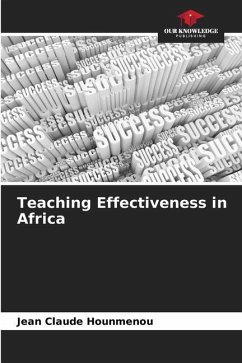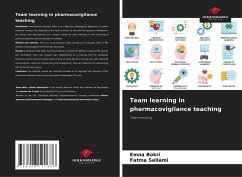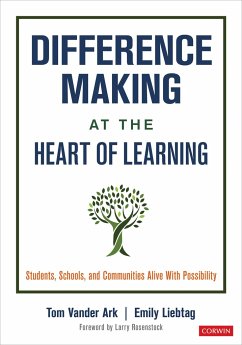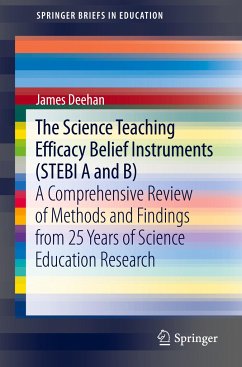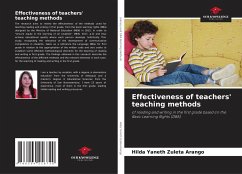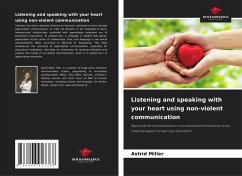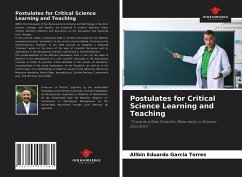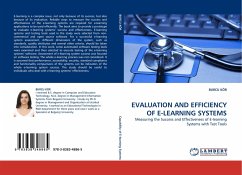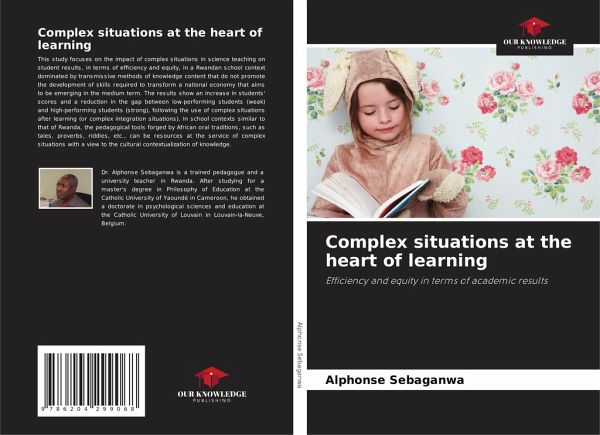
Complex situations at the heart of learning
Efficiency and equity in terms of academic results
Versandkostenfrei!
Versandfertig in 6-10 Tagen
53,99 €
inkl. MwSt.

PAYBACK Punkte
27 °P sammeln!
This study focuses on the impact of complex situations in science teaching on student results, in terms of efficiency and equity, in a Rwandan school context dominated by transmissive methods of knowledge content that do not promote the development of skills required to transform a national economy that aims to be emerging in the medium term. The results show an increase in students' scores and a reduction in the gap between low-performing students (weak) and high-performing students (strong), following the use of complex situations after learning (or complex integration situations). In school...
This study focuses on the impact of complex situations in science teaching on student results, in terms of efficiency and equity, in a Rwandan school context dominated by transmissive methods of knowledge content that do not promote the development of skills required to transform a national economy that aims to be emerging in the medium term. The results show an increase in students' scores and a reduction in the gap between low-performing students (weak) and high-performing students (strong), following the use of complex situations after learning (or complex integration situations). In school contexts similar to that of Rwanda, the pedagogical tools forged by African oral traditions, such as tales, proverbs, riddles, etc., can be resources at the service of complex situations with a view to the cultural contextualization of knowledge.



